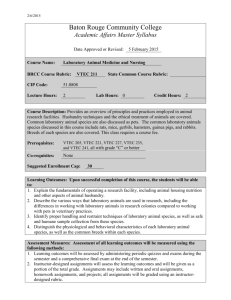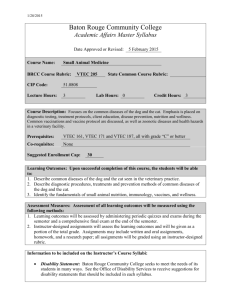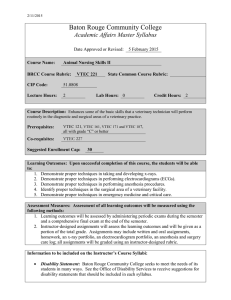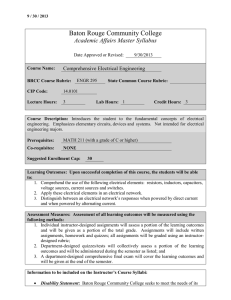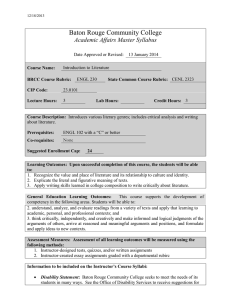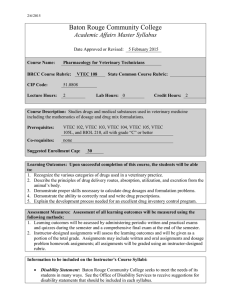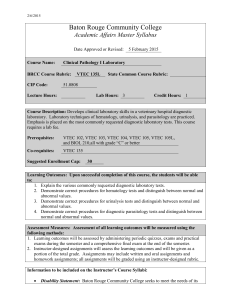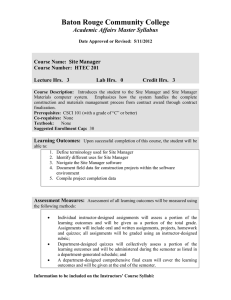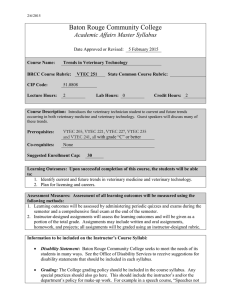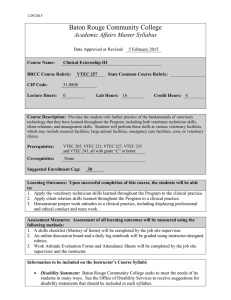Baton Rouge Community College Academic Affairs Master Syllabus
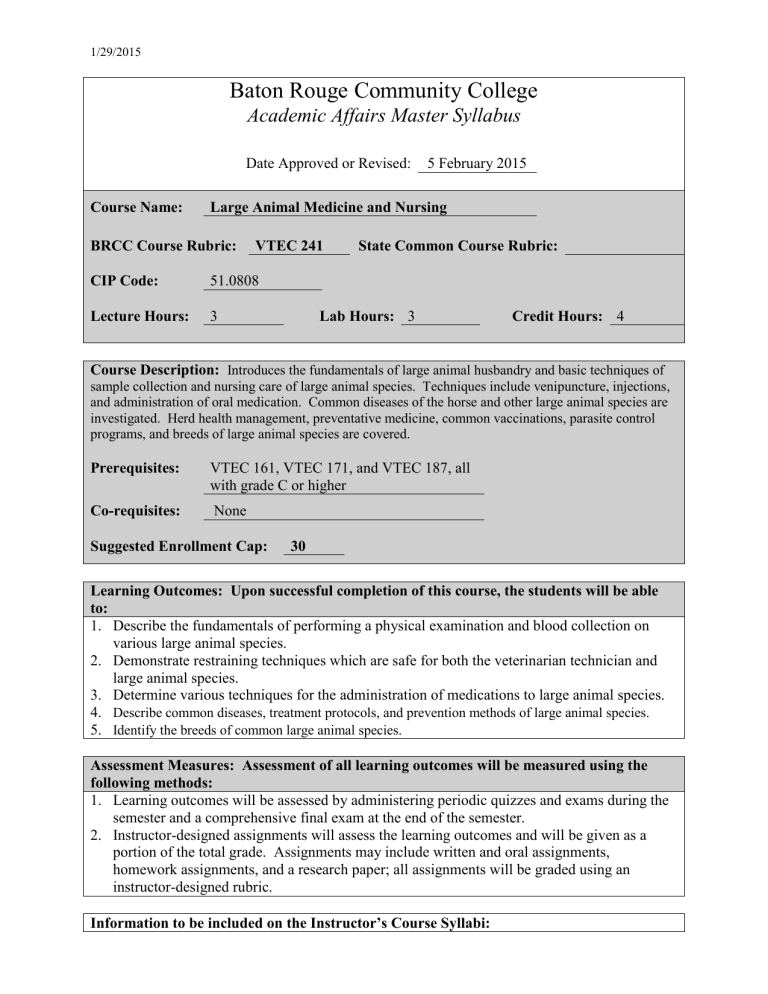
1/29/2015
Baton Rouge Community College
Academic Affairs Master Syllabus
Date Approved or Revised: 5 February 2015
Course Name: Large Animal Medicine and Nursing
BRCC Course Rubric: VTEC 241
CIP Code: 51.0808
State Common Course Rubric:
Lab Hours: 3 Credit Hours: 4 Lecture Hours: 3
Course Description: Introduces the fundamentals of large animal husbandry and basic techniques of sample collection and nursing care of large animal species. Techniques include venipuncture, injections, and administration of oral medication. Common diseases of the horse and other large animal species are investigated. Herd health management, preventative medicine, common vaccinations, parasite control programs, and breeds of large animal species are covered.
Prerequisites: VTEC 161, VTEC 171, and VTEC 187, all with grade C or higher
Co-requisites: None
Suggested Enrollment Cap: 30
Learning Outcomes: Upon successful completion of this course, the students will be able to:
1.
Describe the fundamentals of performing a physical examination and blood collection on various large animal species.
2.
Demonstrate restraining techniques which are safe for both the veterinarian technician and large animal species.
3.
Determine various techniques for the administration of medications to large animal species.
4.
Describe common diseases, treatment protocols, and prevention methods of large animal species.
5.
Identify the breeds of common large animal species.
Assessment Measures: Assessment of all learning outcomes will be measured using the following methods:
1.
Learning outcomes will be assessed by administering periodic quizzes and exams during the semester and a comprehensive final exam at the end of the semester.
2.
Instructor-designed assignments will assess the learning outcomes and will be given as a portion of the total grade. Assignments may include written and oral assignments, homework assignments, and a research paper; all assignments will be graded using an instructor-designed rubric.
Information to be included on the Instructor’s Course Syllabi:
Disability Statement: Baton Rouge Community College seeks to meet the needs of its students in many ways. See the Office of Disability Services to receive suggestions for disability statements that should be included in each syllabus.
Grading: The College grading policy should be included in the course syllabus. Any special practices should also go here. This should include the instructor’s and/or the department’s policy for make-up work. For example in a speech course, “Speeches not given on due date will receive no grade higher than a sixty” or “Make-up work will not be accepted after the last day of class.”
Attendance Policy: Include the overall attendance policy of the college. Instructors may want to add additional information in individual syllabi to meet the needs of their courses.
General Policies:
Instructors’ policy on the use of things such as beepers and cell phones and/or hand held programmable calculators should be covered in this section.
Cheating and Plagiarism: This must be included in all syllabi and should include the penalties for incidents in a given class. Students should have a clear idea of what constitutes cheating in a given course.
Safety Concerns: In some programs this may be a major issue. For example, “No student will be allowed in the safety lab without safety glasses.” General statements such as, “Items that may be harmful to one’s self or others should not be brought to class.”
Library/ Learning Resources: Since the development of the total person is part of our mission, assignments in the library and/or the Learning Resources Center should be included to assist students in enhancing skills and in using resources. Students should be encouraged to use the library for reading enjoyment as part of lifelong learning.
Expanded Course Outline:
I.
Large animal nursing a.
Restraint techniques b.
Physical examination c.
Venipuncture d.
Medication administration e.
Special techniques
II.
Nutrition and wellness
III.
Vaccines and vaccine protocols
IV.
Parasite treatment programs
V.
Common diseases of large animal species
VI.
Zoonoses in large animal medicine
VII.
Large animal breeds
2
